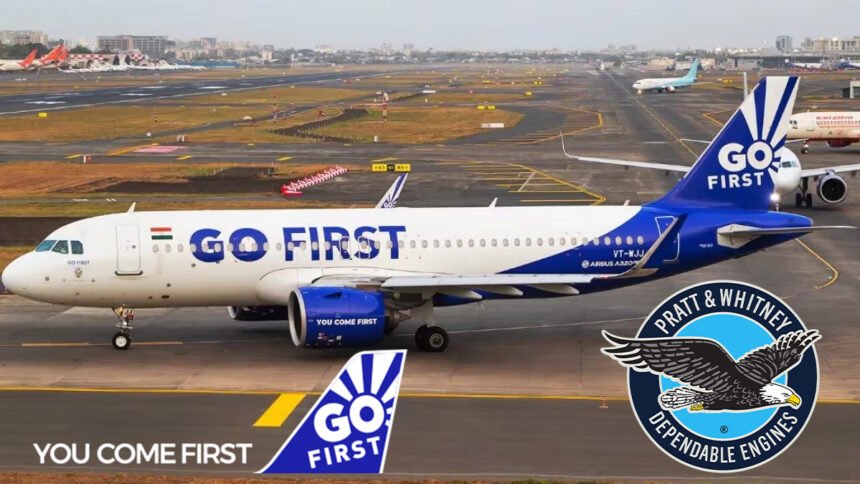Pratt & Whitney, a US-based engine maker, has recently announced the need to inspect approximately 1,200 engines for potential defects. This decision has put India’s largest airline, IndiGo, on alert as it is the primary customer of A320 planes powered by P&W engines. Additionally, the grounded carrier Go First, which also operates A320 neo aircraft, is impacted by the issue.
IndiGo expressed its commitment to working closely with Pratt & Whitney in assessing and minimizing any potential impact on its fleet. The airline is concerned about the disruptions that might occur due to these inspections, especially given the scale of its operations relying on the A320 planes.
The problem arises from a rare condition found in the powdered metal used to manufacture specific engine parts. Pratt & Whitney revealed that this condition could potentially reduce the lifespan of these crucial components, causing reliability issues and concerns about passenger safety.
This development adds to the mounting woes faced by Pratt & Whitney, as it was already grappling with supply chain issues even before this discovery. Now, the engine maker faces the daunting task of inspecting a significant number of engines while simultaneously trying to resolve the supply chain problems.
The situation has drawn attention from various aviation authorities and experts, who are closely monitoring the developments to ensure passenger safety and airline operations are not compromised.
IndiGo and Go First are not the only airlines impacted by the engine defects. Many other carriers worldwide operate A320 planes with P&W engines and may also be affected by the inspections and potential component replacements.
Industry insiders are expressing concerns about the potential financial strain on airlines due to the need for extensive inspections and necessary replacements. Additionally, the possibility of flight cancellations and delays could lead to passenger inconvenience and may impact the overall travel industry’s recovery post-pandemic.
Airlines are now faced with the challenge of managing their operations during this period of uncertainty. They must strike a balance between adhering to the engine maker’s recommendations for inspections and ensuring minimum disruptions to flight schedules.
Pratt & Whitney is undoubtedly working diligently to address the issue and provide solutions promptly. However, the supply chain challenges may pose additional obstacles, causing delays in obtaining replacement parts.
Despite the challenges, the aviation industry remains resilient and adaptable. Airlines are well-versed in managing unexpected disruptions and have contingency plans in place to handle such situations effectively. The focus now is on collaborating with Pratt & Whitney and relevant regulatory authorities to ensure swift action while prioritizing passenger safety.
As the situation unfolds, passengers are advised to stay informed about potential flight changes and reach out to airlines for any updates or assistance regarding their travel plans. Passengers’ cooperation and understanding during this period of uncertainty will play a crucial role in managing the impacts of the engine inspections.
The civil aviation authorities in various countries are closely working with Pratt & Whitney to oversee the inspection process and ensure that necessary measures are taken to address the issue promptly.
Pratt & Whitney’s decision to inspect around 1,200 engines for defects has raised concerns for IndiGo, Go First, and several other airlines operating A320 planes with P&W engines. The aviation industry is facing yet another challenge amidst the ongoing recovery from the pandemic. Collaborative efforts between airlines, the engine manufacturer, and regulatory authorities will be essential in navigating through this period of uncertainty while prioritizing passenger safety and minimizing disruptions.




